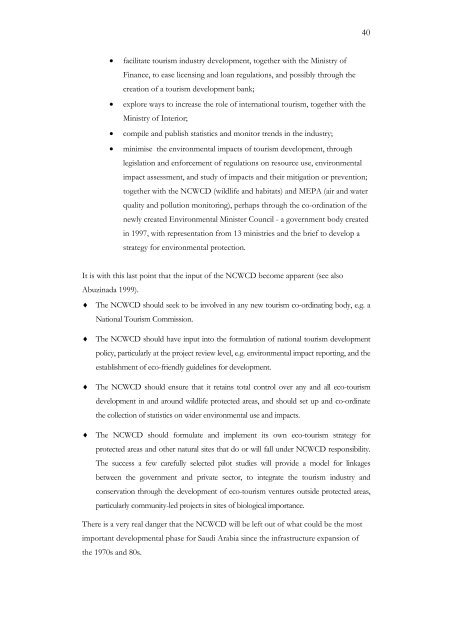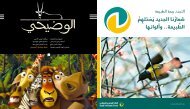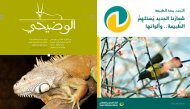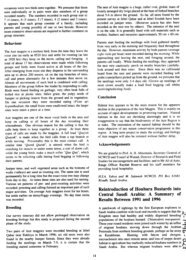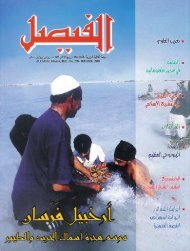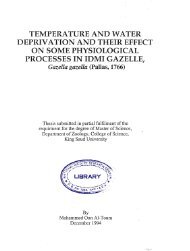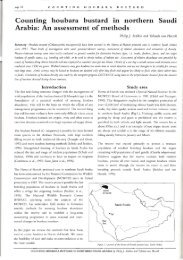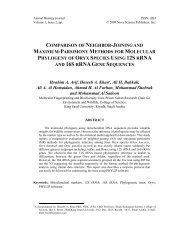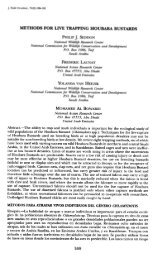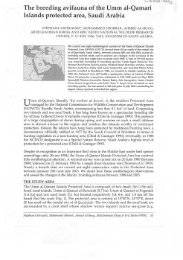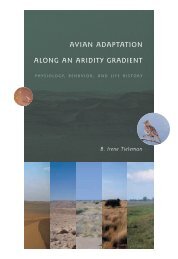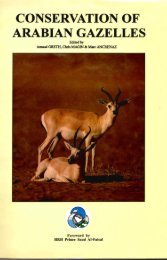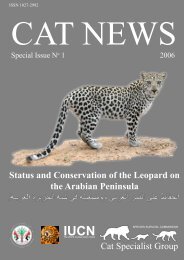The Unfenced Desert Towards a strategy for eco ... - Nwrc.gov.sa
The Unfenced Desert Towards a strategy for eco ... - Nwrc.gov.sa
The Unfenced Desert Towards a strategy for eco ... - Nwrc.gov.sa
Create successful ePaper yourself
Turn your PDF publications into a flip-book with our unique Google optimized e-Paper software.
• facilitate tourism industry development, together with the Ministry of<br />
Finance, to ease licensing and loan regulations, and possibly through the<br />
creation of a tourism development bank;<br />
• explore ways to increase the role of international tourism, together with the<br />
Ministry of Interior;<br />
• compile and publish statistics and monitor trends in the industry;<br />
• minimise the environmental impacts of tourism development, through<br />
legislation and en<strong>for</strong>cement of regulations on resource use, environmental<br />
impact assessment, and study of impacts and their mitigation or prevention;<br />
together with the NCWCD (wildlife and habitats) and MEPA (air and water<br />
quality and pollution monitoring), perhaps through the co-ordination of the<br />
newly created Environmental Minister Council - a <strong>gov</strong>ernment body created<br />
in 1997, with representation from 13 ministries and the brief to develop a<br />
<strong>strategy</strong> <strong>for</strong> environmental protection.<br />
It is with this last point that the input of the NCWCD b<strong>eco</strong>me apparent (see also<br />
Abuzinada 1999).<br />
♦ <strong>The</strong> NCWCD should seek to be involved in any new tourism co-ordinating body, e.g. a<br />
National Tourism Commission.<br />
♦ <strong>The</strong> NCWCD should have input into the <strong>for</strong>mulation of national tourism development<br />
policy, particularly at the project review level, e.g. environmental impact reporting, and the<br />
establishment of <strong>eco</strong>-friendly guidelines <strong>for</strong> development.<br />
♦ <strong>The</strong> NCWCD should ensure that it retains total control over any and all <strong>eco</strong>-tourism<br />
development in and around wildlife protected areas, and should set up and co-ordinate<br />
the collection of statistics on wider environmental use and impacts.<br />
♦ <strong>The</strong> NCWCD should <strong>for</strong>mulate and implement its own <strong>eco</strong>-tourism <strong>strategy</strong> <strong>for</strong><br />
protected areas and other natural sites that do or will fall under NCWCD responsibility.<br />
<strong>The</strong> success a few carefully selected pilot studies will provide a model <strong>for</strong> linkages<br />
between the <strong>gov</strong>ernment and private sector, to integrate the tourism industry and<br />
conservation through the development of <strong>eco</strong>-tourism ventures outside protected areas,<br />
particularly community-led projects in sites of biological importance.<br />
<strong>The</strong>re is a very real danger that the NCWCD will be left out of what could be the most<br />
important developmental phase <strong>for</strong> Saudi Arabia since the infrastructure expansion of<br />
the 1970s and 80s.<br />
40


